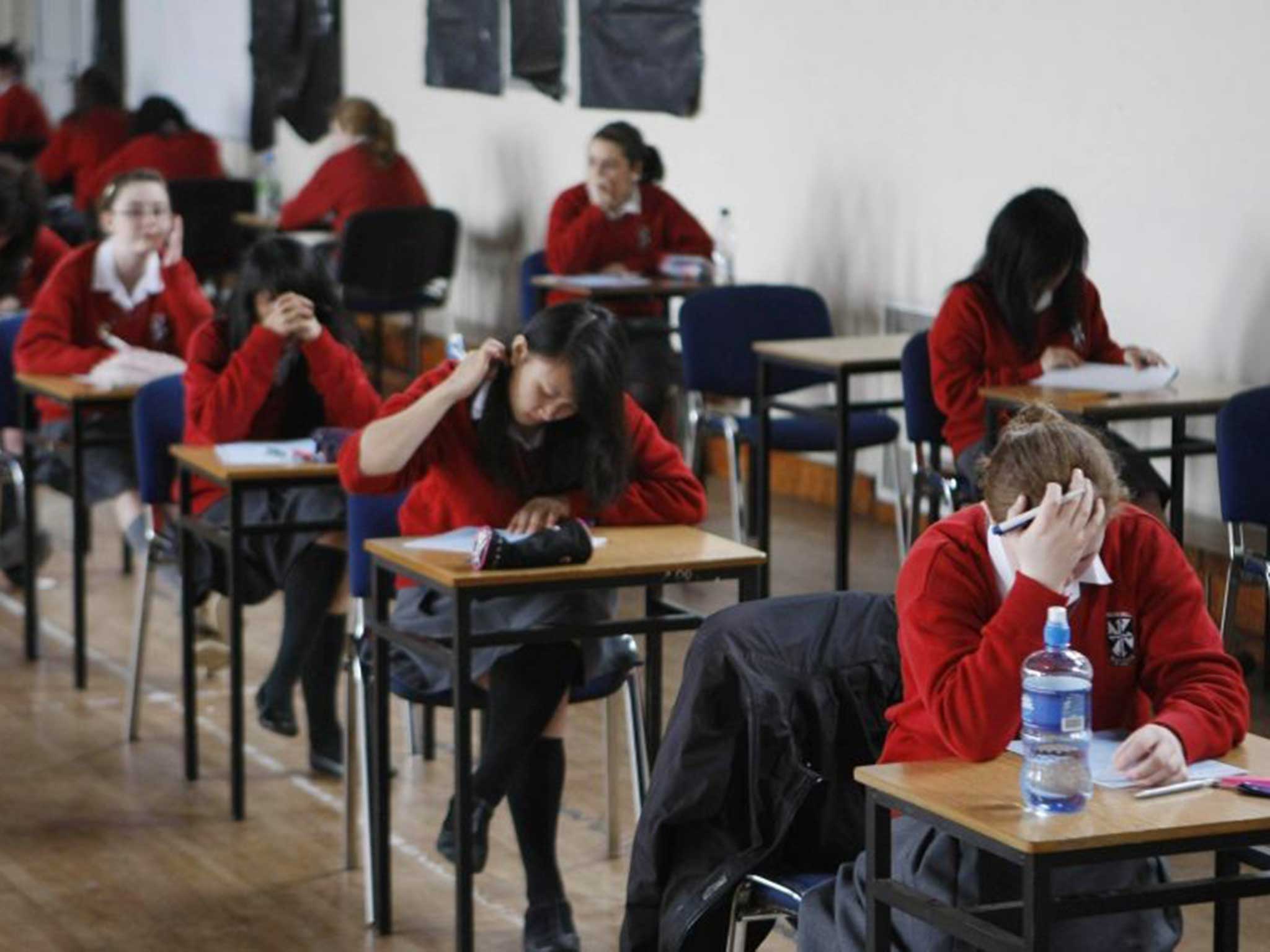Regional inequality in education has increased over 30 years, study finds
A large difference in GCSE results was found between the worst and best performing areas in the country

Your support helps us to tell the story
From reproductive rights to climate change to Big Tech, The Independent is on the ground when the story is developing. Whether it's investigating the financials of Elon Musk's pro-Trump PAC or producing our latest documentary, 'The A Word', which shines a light on the American women fighting for reproductive rights, we know how important it is to parse out the facts from the messaging.
At such a critical moment in US history, we need reporters on the ground. Your donation allows us to keep sending journalists to speak to both sides of the story.
The Independent is trusted by Americans across the entire political spectrum. And unlike many other quality news outlets, we choose not to lock Americans out of our reporting and analysis with paywalls. We believe quality journalism should be available to everyone, paid for by those who can afford it.
Your support makes all the difference.Regional inequality in England and Wales is playing an increasingly damaging role on children's education, new research suggests.
A report by the Social Market Foundation found the effect of where children live on educational achievements has grown over the last 30 years.
Over 70 per cent of pupils in London currently achieve five A*-C GCSEs, compared to 63 per cent achieving the same in Yorkshire and Humber.
Where children live has become a more powerful predictor of academic success for children born in 2000 than it was for children born in 1970, the researchers claim.
There is a large difference in GCSE results between worst and best performing areas
Speaking at the launch of the SMF report in Westminster, former deputy prime minister Nick Clegg said: "What is now becoming clear is that inequality in education comes in many shapes and sizes.
"It is not just the relative wealth of parents that holds large numbers of bright kids back: it is postcode inequality too. What part of the country a child grows up in has a real impact on their life chances."
The SMF analysed how well children aged 11 performed from three generations - those born in 1958, 1970 and 2000 - using verbal reasoning tests.
“For the youngest group – those who are in secondary school today – there were stark differences in performance in different regions," Mr Clegg said.
"Those living in London, the South East and the North West had the highest proportion of high scores. Whereas those living in the North East, Yorkshire and the West Midlands had the highest proportions of poor scores.”
“We may live on a small island – but which corner of it our children call home makes a huge difference to their life chances too.”
Mr Clegg announced the launch of a new independent cross-party Commission on Inequality in Education, which will examine the causes and effects of inequality in education at primary and secondary schools.
The report will focus in particular on the growing influence of geographical region on academic success, and will report its findings next year.
Investigating the influence of ethnicity, the report also found more than 85 per cent of Chinese pupils attained five A*-C GCSEs compared to 59 per cent of black Caribbean students.
It also noted white students have fallen from being "over-performers to under-performers on average over the last three decades".
Emran Mian, director of the SMF, said: “Our new research also shows that the story around ethnic origin and education has become much more complex. Previously, children from all non-white backgrounds did less well.
"Now, children from some ethnic groups, including Chinese and Indian children, do better than the average, while others – including black Caribbean and poor white children – do worse.”
Join our commenting forum
Join thought-provoking conversations, follow other Independent readers and see their replies
Comments